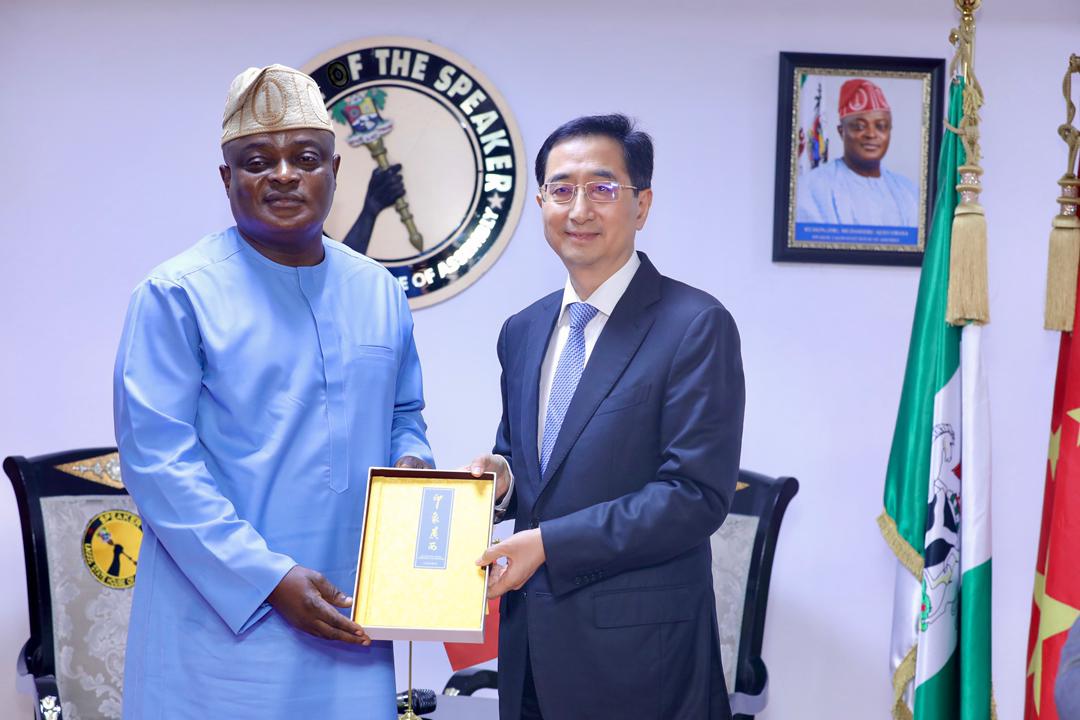On Tuesday, August 26, 2025, the Cross River State Local Government Service Commission announced a landmark achievement in its efforts to revitalize the state’s local government workforce, revealing that it had recruited no fewer than 4,000 workers across the 18 council areas of the state over the past year. This significant milestone, disclosed by the commission’s Chairman, Darlington Eyo, during an interactive session with journalists in Calabar, marks the first large-scale employment exercise in the state in 37 years. Approved by Governor Bassey Otu under his administration’s “People First Mantra,” the recruitment drive aims to address critical staffing shortages, enhance service delivery, and promote economic development at the grassroots level. This report provides an in-depth analysis of the recruitment exercise, its implications for Cross River State, and the broader context of the state’s efforts to strengthen its local government system.
A Historic Recruitment Drive
The recruitment of 4,000 workers into the Cross River State local government system represents a historic step toward addressing longstanding challenges in the state’s administrative framework. Darlington Eyo, speaking to journalists in Calabar, emphasized that the exercise was a direct response to the depleted workforce inherited by the commission. When Governor Bassey Otu’s administration took office, the Local Government Service Commission discovered that the workforce stood at approximately 9,000 employees, significantly below the expected range of 12,000 to 13,000. This shortfall had severely hampered the ability of local councils to deliver essential services, such as education, healthcare, and infrastructure maintenance, to residents across the state’s 18 council areas.
Eyo explained that the recruitment, approved under Governor Otu’s “People First Mantra,” was designed to fill these gaps and ensure that local governments could meet their obligations effectively. “The governor’s vision is to prioritize the welfare and development of our people, and a robust local government workforce is critical to achieving this goal,” he said. The “People First Mantra” encapsulates Otu’s commitment to placing the needs of Cross River’s citizens at the heart of his administration’s policies, with a focus on improving service delivery, creating jobs, and fostering economic growth.
The recruitment exercise, which began in the past year, has already absorbed over 3,000 workers who met the commission’s requirements. Eyo noted that the process is ongoing, as it is not feasible to engage all 9,000 needed workers at once. “We have strategically phased the recruitment to ensure that we bring in qualified individuals who can contribute meaningfully to the system,” he said. This phased approach reflects the commission’s commitment to balancing urgency with quality, ensuring that the recruitment process is both efficient and effective.
Addressing a Depleted Workforce
The depletion of the local government workforce in Cross River State is a legacy issue that has accumulated over decades. Eyo highlighted that the last significant recruitment exercise occurred 37 years ago, leaving the system struggling to cope with retirements, resignations, and natural attrition. The shortfall of approximately 3,000 to 4,000 workers had created significant gaps in service delivery, particularly in rural areas where local governments are often the primary interface between citizens and the state.
The consequences of this depletion were far-reaching. Local councils faced challenges in maintaining schools, health centers, and public infrastructure, leading to declining standards of living for many residents. In some areas, critical services such as waste management, road maintenance, and community development projects were either underfunded or nonexistent due to a lack of personnel. The recruitment of 4,000 workers is therefore a critical step toward reversing these trends and restoring the capacity of local governments to serve their communities.
Eyo emphasized that the recruitment exercise was carefully designed to address these gaps while aligning with the state’s broader development goals. The commission prioritized candidates with the skills and qualifications needed to enhance service delivery, focusing on areas such as education, healthcare, administration, and technical services. By targeting these key sectors, the recruitment drive aims to create a more robust and responsive local government system that can meet the diverse needs of Cross River’s population.
Transparency and Merit-Based Recruitment
One of the key concerns surrounding large-scale recruitment exercises in Nigeria is the potential for job racketeering and favoritism. Darlington Eyo was quick to address these concerns, dismissing allegations of impropriety and emphasizing the transparency and merit-based nature of the process. “We have ensured that every step of this recruitment exercise is open, fair, and based on merit,” he said. “Our goal is to build a workforce that reflects the best of Cross River, with individuals who are qualified and committed to serving their communities.”
To safeguard the integrity of the process, the commission implemented strict guidelines and oversight mechanisms. Applications were thoroughly vetted, and candidates were subjected to rigorous screening processes to ensure that only those who met the requirements were selected. Eyo warned members of the public against dealing with impostors claiming to act on behalf of the commission, stating that anyone caught engaging in such activities would face consequences. “We are committed to protecting the integrity of this exercise, and we will expose anyone attempting to undermine it,” he said.
This emphasis on transparency is particularly significant in the context of Nigeria’s public sector, where allegations of corruption and nepotism have often undermined recruitment efforts. By prioritizing merit and accountability, the Cross River State Local Government Service Commission is setting a standard for other states to follow, demonstrating that large-scale recruitment can be conducted with integrity and fairness.
Tackling Ghost Workers and Payroll Fraud
In addition to the recruitment drive, the commission conducted a comprehensive audit of local government payrolls, uncovering approximately 800 ghost workers—fictitious employees who were drawing salaries without contributing to the system. The removal of these ghost workers has had a significant impact, reducing the state’s wage bill and freeing up resources for legitimate employees and development projects.
The discovery of ghost workers is a common issue in Nigeria’s public sector, where payroll fraud has long been a drain on government resources. By addressing this problem, the Cross River State Local Government Service Commission has taken a critical step toward improving efficiency and accountability. The savings from the removal of ghost workers can be reinvested into critical areas such as infrastructure, healthcare, and education, further enhancing the state’s capacity to deliver services.
Eyo noted that the payroll audit was part of a broader effort to create a more efficient and transparent local government system. “By cleaning up the payroll, we are not only saving money but also ensuring that resources are allocated to those who are genuinely working for the people of Cross River,” he said. This initiative aligns with Governor Otu’s commitment to good governance and fiscal responsibility, reinforcing the administration’s reputation as a forward-thinking and accountable government.
Capacity Building and Training Programs
Beyond recruitment, the Cross River State Local Government Service Commission has introduced training programs to build the capacity of council staff. These programs are designed to equip employees with the skills and knowledge needed to perform their roles effectively, ensuring that the local government system is both efficient and responsive to the needs of citizens.
Eyo highlighted the importance of these training initiatives, noting that a skilled workforce is essential for achieving the state’s development goals. “We are not just hiring people; we are investing in their growth and development,” he said. The training programs cover a range of areas, including administrative skills, financial management, project implementation, and customer service. By building the capacity of council staff, the commission aims to improve service delivery and create a culture of professionalism within the local government system.
The governor’s role in providing an enabling environment for these initiatives was also acknowledged. Eyo praised Governor Otu for his support, noting that his leadership has been instrumental in creating the conditions for the commission to deliver on its mandate. “The governor has provided the resources and political will needed to transform our local government system,” he said. This collaboration between the state government and the commission underscores the importance of strong leadership in driving systemic change.
The Broader Context: Cross River’s Development Agenda
The recruitment of 4,000 workers and the associated reforms must be understood within the broader context of Cross River State’s development agenda. Under Governor Bassey Otu, the state has prioritized economic growth, social development, and good governance as key pillars of its administration. The “People First Mantra” reflects a commitment to placing the needs of citizens at the heart of policymaking, with a focus on improving living standards and creating opportunities for all.
Cross River, known for its rich cultural heritage and natural beauty, has significant potential to become a leading economic hub in Nigeria. The state is home to popular tourist destinations such as the Obudu Cattle Ranch and the Calabar Carnival, which attract visitors from across the country and beyond. However, challenges such as unemployment, inadequate infrastructure, and limited access to services have hindered its growth in recent years.
The recruitment of 4,000 workers is a critical step toward addressing these challenges. By strengthening the local government system, the state is creating a foundation for improved service delivery, economic empowerment, and social cohesion. The jobs created through this exercise will provide income and stability for thousands of families, contributing to poverty reduction and economic growth.
Challenges and Opportunities
While the recruitment drive is a significant achievement, it is not without challenges. The phased approach to hiring, while strategic, means that some vacancies remain unfilled, and the commission must continue to manage expectations among job seekers. Ensuring that the recruitment process remains transparent and merit-based will be critical to maintaining public trust and avoiding controversies.
The issue of ghost workers also highlights the need for ongoing vigilance to prevent fraud and corruption. The commission must continue to strengthen its oversight mechanisms to ensure that the payroll remains clean and that resources are allocated efficiently. Additionally, the training programs introduced by the commission will need to be sustained and expanded to ensure that employees remain equipped to meet the evolving needs of the state.
Despite these challenges, the opportunities presented by the recruitment exercise are immense. The influx of new workers will enhance the capacity of local councils to deliver services, from education and healthcare to infrastructure and community development. The jobs created will also stimulate economic activity, as workers spend their incomes on goods and services, creating a multiplier effect in the local economy.
Conclusion
The recruitment of 4,000 workers by the Cross River State Local Government Service Commission is a historic milestone that reflects the state’s commitment to revitalizing its local government system and promoting economic development. Under the leadership of Governor Bassey Otu and the guidance of Chairman Darlington Eyo, the commission has taken bold steps to address staffing shortages, eliminate ghost workers, and build the capacity of council staff. The transparency and merit-based approach to the recruitment process, combined with the introduction of training programs, sets a standard for other states to emulate.
This initiative, grounded in the “People First Mantra,” demonstrates Cross River’s dedication to improving the lives of its citizens through better governance and service delivery. As the state continues to implement its development agenda, the recruitment of 4,000 workers will serve as a catalyst for economic growth, social empowerment, and sustainable progress, positioning Cross River as a model of effective local governance in Nigeria.







